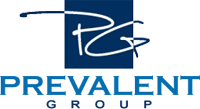Remember when September was exciting? When it meant a fresh start, new friendships, and opportunities to learn new things? Without “back-to-school” excitement, most adults don’t look forward to fall season the way they once did.
However, it’s always important to keep learning. Expanding your skills and knowledge base will make you more valuable to your current employer and more marketable to future employers. According to the
American Psychological Association, learning can also help you increase your job satisfaction and reduce stress. There are many ways that you can go “back to school” on the job this September.
Enroll in a Class
Visit the websites of your local colleges, universities, community colleges, and adult education centers. You don’t have to enroll in a degree program, but you may find a class or two that not only interests you, but will help you stay on the cutting edge of your field.
Sign Up for a Conference
Conferences are great places to network and to learn. Research conferences in your area of expertise, and when you find one that interests you, approach your boss to see if the company would be willing to sponsor your registration fee. They may be willing to pay for part of the fee or all of the fee, depending upon the conference and the skills you can bring back to the organization.
Start a Lunch-and-Learn Program
If your workplace doesn’t have a lunch-and-learn program, talk to your boss about getting one started. You may find that company leadership hops right on board. Lunch-and-learn sessions are events that give employees the opportunity to learn something new over their lunch break. To get things started, tap experts from within the company from different departments. For example, you may ask the marketing director to speak about social media. Lunch-and-learn sessions can be used for personal enrichment or to help employees grow their skills.
Get a Library Card
Do you have a list of books related to your field that you’ve been meaning to read? If you don’t already have one, sign up for a library card and start borrowing books for free. If you learn just one new skill or useful piece of information, you’ll be ahead of the game.
Volunteer for New Projects
A great way to learn is to simply do something. If you’ve been itching to try new things, volunteer for projects that might be slightly out of your comfort zone. Use those projects to not only expand your skill set, but to make professional connections with new co-workers as well.
If you’re looking for new career opportunities this fall, contact
The Prevalent Group. We are a nationally recognized
management and executive placement and recruitment company that works with experienced managers and executives in sales, marketing, engineering, technology and more. We can connect you with positions that will challenge you, expand your horizons, and help you reach your long-term career goals.
